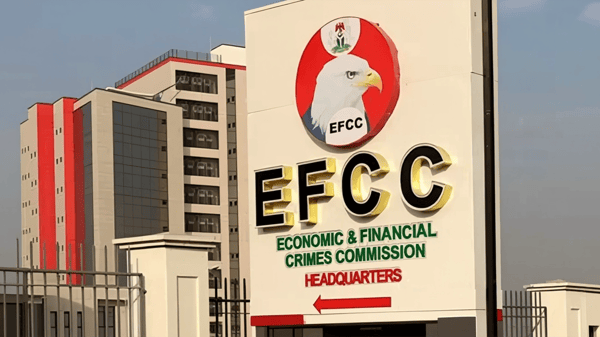By Marcel Okeke
The title of this piece is motivated by another article captioned: “MTN and the Illusion of Progress,” which I found in one WhatsApp platform, written by Chief Chukwuma Ikunna. The author was doing some kind of intertemporal comparisons in the value of stocks quoted on the Nigerian Exchange (NGX), to show that rather than gaining, investors have actually been incurring huge losses in the past couple of years.
And because of the significance and import of Ikunna’s analysis, I hereby quote him verbatim, and will only do a postscript at the end. His piece goes thus: “Let’s be honest, what’s happening to MTN Nigeria isn’t growth, but decline dressed up as success. Investors like us know the truth because we see it in our portfolios. Our shares have lost value. The government, however, would rather brag about numbers that collapse under the slightest scrutiny.
Back in December 2022, MTN Nigeria’s market capitalization was about N4.367 trillion, equal to roughly US$10.4 billion at that time. If Nigeria’s economy were truly on the rise, we should have seen steady growth—by 2023, a projected 40 per cent jump to around US$14.56 billion, and another 40 per cent climb in 2024, bringing MTN’s value to about US$20.4 billion. These are the kind of jumps telecom companies are experiencing globally, given new technologies and new and refined multiple streams of income.
Instead, what the government boasts today is a so-called N10 trillion market capitalization, which at current exchange rate barely amounts to US$6.5 billion. That’s not progress, but a staggering 40 per cent collapse—over US$4 billion wiped out—since May 2023. And yet, the government dares to hold this up as a symbol of its success.The world isn’t standing still, while Nigeria backslides; the rest of the world is racing ahead. Compare MTN’s value with the global telecom heavyweights: AT & T (US$268B); China Mobile (US$242B); Verizon (US$207B); Deutsche Telekom (US$167B); and NTT (US$177B).Even more telling are the Indian giants like Reliance Jio and Bharti Airtel who are powering ahead on the back of a booming market. While Western leaders are pouring billions into 5G and digital infrastructure, Nigeria is busy spinning failure into fairy tales.
The bigger picture is that the global telecom services market is set to grow at a healthy 6.5 per cent CAGR from 2025 to 2030, hitting nearly US$3 trillion. Asia Pacific will dominate this boom. In contrast, Nigeria—once a bright spot for telecoms in Africa, is watching investors flee, innovation stall, and growth opportunities evaporate.
The bitter truth is that Nigerian economy is on life support. Investors dread it, businesses are suffocated, and instead of this administration creating incentives for growth, the government is busy taxing the life out of the formal economy, a recipe for disaster. It will not build prosperity, but will push more Nigerians into the informal, shadow economy, leaving the country even weaker.
So, when officials parade MTN’s so-called performance as a win, remember that it is not evidence of progress, but proof of economic rot being passed off as reform.”
Postscript: Truly, the worth of shares/stocks of listed companies on the NGX has been declining in real terms in the past couple of years. For instance, while the NGX market capitalization on December 31, 2022, was approximately N28.65 trillion (around US$62.8 billion), as of September 24, 2025, when the market capitalization came to nearly N90 trillion, this amounted to only about US$60 billion. In dollar terms therefore, between end-2022 and today, investors have (technically) lost almost US$3 billion.
This loss in value of stocks is vividly portrayed in my article (‘Money Illusion’ and Tinubu’s Challenge to Governors) published in March, 2025. The article says: Money illusion, in Economics, refers to the tendency of people to confuse the nominal value of money (its face value) with its real value (its purchasing power). In other words, people tend to think that certain amount of money has the same value over time, even if the purchasing power of the money has massively decreased due to inflation.
I concluded in the article that: It goes without saying that money illusion exerts a number of negative effects on an economy, including the distorted impression of ‘abundance’ of money. It leads to poor financial decision by all economic agents—as they cannot accurately take into account the effects of inflation on their money.
In the case study (above) where Ikunna focused on MTN Nigeria, and its worth, it became obvious that investors have incurred losses due to inflation as well as due massive devaluation of the Naira. Precariously, most of the quoted companies on the NGX almost collapsed due to the impacts of such policies as fuel subsidy removal and Naira floatation in 2024.
Whether it is the Nigerian Breweries Plc or Nestle Nigeria Plc or Cadbury’s Nigeria Plc or the Lever Brothers (Nig.) Plc, each of them suffered massive losses owing to foreign exchange challenges, among others. Each of them experienced crash in share prices, just like the MTN Nigeria. But for the recent controversial approval of a 50 per cent increase in data and voice charges by the Federal Government, the MTN and other telecom companies were almost getting asphyxiated.
On the aggregate, therefore, it is doubtful if the NGX market capitalization of today (of about N90 trillion) is yet up to what it was a few years ago, due to massive Naira devaluation and hyperinflationary trend in the past couple of years. Particularly in dollar terms, the NGX market capitalization which stood at US$92.54 billion in March 2008 has nosedived to today’s US$60 (about N90 trillion).

The author, Okeke, a practicing Economist, Business Strategist, Sustainability expert and ex-Chief Economist of Zenith Bank Plc, lives in Lekki, Lagos. He can be reached via: obioraokeke2000@yahoo.com (08033075697) SMS only




